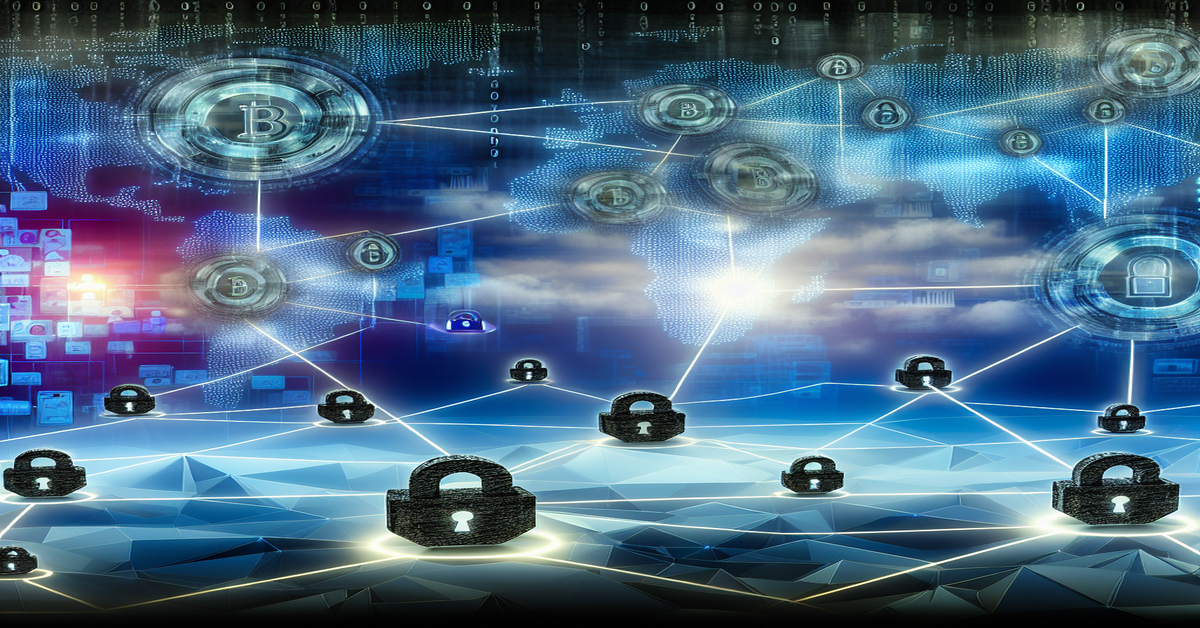Blockchain: Reimagining Enterprise Cyber Protection with a New Identity Paradigm
In today’s digital landscape, cyber security and identity management have become critical concerns for enterprises worldwide. With the increasing frequency and sophistication of cyber attacks, traditional identity management systems are struggling to keep up. However, a new player has emerged on the scene, promising to revolutionize the way we approach identity and security: **blockchain technology**.
The Limitations of Traditional Identity Management
Picture this: you’re an employee at a large corporation, juggling multiple passwords for various systems and applications. Every time you need to access a different platform, you’re prompted to enter your credentials, leading to a cumbersome and frustrating user experience. But the problems with traditional identity management go beyond just inconvenience.
Centralized databases, which form the backbone of many current identity management systems, are inherently vulnerable. They present a single point of failure, making them an attractive target for hackers and cybercriminals. A successful breach can result in the theft of sensitive data, compromising the identities of countless individuals and causing significant financial and reputational damage to the enterprise.
Blockchain: A Game-Changer in Identity Management
Enter blockchain technology, a distributed ledger system that offers a paradigm shift in how we manage identities. By leveraging the power of decentralization, blockchain eliminates the need for a central authority to control and store identity data. Instead, information is spread across a network of nodes, making it virtually impossible for hackers to compromise the entire system.
One of the key concepts enabled by blockchain is **self-sovereign identity**. This revolutionary approach puts individuals in full control of their personal data. Rather than relying on third-party intermediaries to manage their identities, users can create and manage their own digital identities, deciding who has access to their information and under what circumstances. This level of user empowerment is a game-changer in the world of identity management.
Enhancing Security and Streamlining Authentication
Blockchain’s inherent security features make it a formidable ally in the fight against cyber threats. Its cryptographic mechanisms ensure the integrity and immutability of data, meaning that once an identity is recorded on the blockchain, it cannot be altered or tampered with. This significantly reduces the risk of identity theft and unauthorized access, providing enterprises with a robust layer of protection.
Moreover, blockchain-based identity solutions can streamline authentication processes, making them more efficient and user-friendly. By utilizing unique digital identifiers, users can securely access multiple systems and applications without the need for multiple passwords. This not only enhances the user experience but also reduces the likelihood of password fatigue and the associated security risks.
Compliance and Privacy: Blockchain’s Perfect Fit
In an era where privacy regulations such as GDPR and CCPA are becoming increasingly stringent, blockchain’s decentralized nature aligns perfectly with the requirements of data protection. By giving individuals control over their personal data and ensuring that it is only accessible with their explicit consent, blockchain helps enterprises comply with these regulations while fostering trust and transparency with their customers.
The Future of Enterprise Cyber Protection
As the digital landscape continues to evolve, enterprises must adapt their cyber protection strategies to stay ahead of the curve. Blockchain-based identity solutions offer a compelling way forward, providing enhanced security, improved user experiences, and compliance with privacy regulations.
Leading organizations are already recognizing the potential of blockchain in identity management. From financial institutions to healthcare providers, enterprises across various sectors are exploring and implementing blockchain-based solutions to bolster their cyber defenses and streamline their operations.
As we look to the future, it’s clear that blockchain will play a pivotal role in reshaping the identity management landscape. By embracing this transformative technology, enterprises can not only protect themselves against the ever-growing threat of cyber attacks but also unlock new opportunities for innovation and growth.
#Blockchain #IdentityManagement #CyberSecurity #EnterpriseProtection
-> Original article and inspiration provided by PYMNTS
-> Connect with one of our AI Strategists today at Opahl Technologies


